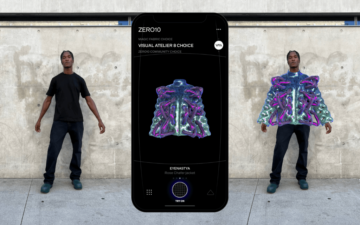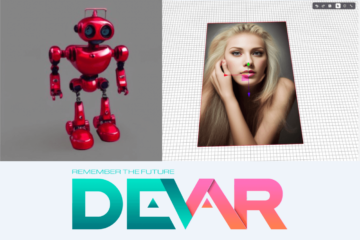Tech publications have been showing you loads of AR experiences by major retail brands, distributors, and producers. But, do people use them? How does the average person actually feel about these experiences? Google did the math on e-commerce.
A recently released report from Google compiles and contextualizes the results of six polls conducted through Ipsos on how people actually view and interact with AR-enabled e-commerce. The results aren’t necessarily surprising, but that makes them even more important.
Methods, Timeframes, and Takeaways of the Report
The report, titled “The Shopping Filter: Marketers are using augmented reality to reinvent the digital store,” collects the results of six polls conducted by Google Shopping Technology and Ipsos in September of 2020.

The polls asked questions about the public’s attitudes toward smartphone use and general e-commerce, as well as questions specifically related to AR. The report acknowledges that responses may have been shaped by the pandemic but also emphasizes that these trends aren’t likely to reverse when social distancing restrictions lift.
“Since the pandemic began, daily life for many of us has shifted to home,” reads the report. “To make up for the lost foot traffic, brands are creating immersive experiences that bring the store to the shopper.”
Naturally, the report specifically mentioned Google Lens. The application allows users to identify elements in the real world through their phone camera and then use those isolated elements as Google search terms.
“Visual search technology makes the world instantly shoppable. Already, people are open to using their phone cameras to search and shop,” reads the report. “With Google Lens, they can shop what they see, learning more about items in real time – from identifying a brand to locating a deal.”
Finally, the report outlined two “Key Takeaways” for businesses: “Plan Ahead” by investing in 3D assets, and “Be Present” by making sure that their inventory is well represented on e-commerce platforms.
How Retailers Approach AR
Some of the use cases outlined in the report are specifically related to businesses stepping up their e-commerce game to make up for decreased in-person interaction. Those were the cases of film franchises using AR to increase engagement while movie theaters are closed, and automotive retailers moving toward “virtual showrooms” while dealerships see reduced traffic.

However, e-commerce wasn’t invented during the lockdown and it isn’t (necessarily or in all cases) intended to replace in-person shopping. According to the report, Shopify – an e-commerce provider that was founded almost 15 years ago – has seen 94% higher conversion rates on products advertised with AR or VR content.
How Consumers Approach E-Commerce
Much of the report detailed consumer attitudes towards e-commerce through smartphones generally and through smart-phone enabled AR solutions in particular. According to the report, over 90% of Americans “currently use or would consider using AR for shopping”, and of those who already use AR for shopping 98% reported finding it helpful.

Further, many smartphone users are expecting retail brands to support AR. According to the report, 43% of respondents who use a smartphone for shopping expected beauty brands to incorporate AR. The number was slightly higher for automotive brands.
The Future of “Visual Search”
Perhaps the most striking line in the report wasn’t a survey result or a statistic. The report’s conclusion states visual search will “become a mainstay of SEO in the coming years.”
Search Engine Optimization, the rules of what search results come from what search terms, are set individually by search engines. As the largest search engine in an area arguably defined by the search engine, Google’s sentiment that how we use search engines could drastically change “in the coming years” should give us pause.
It’s unclear whether this statement is a forecast by the authors or an indication of an intended policy change at Google. Either way, it’s a huge statement.
Source: https://arpost.co/2021/03/04/google-shoppers-feel-ar-enabled-e-commerce/
- 3d
- active
- Application
- AR
- AR experiences
- AREA
- Assets
- Augmented Reality
- authors
- automotive
- Beauty
- border
- brands
- businesses
- cameras
- Campaign
- cases
- change
- closed
- coming
- consumer
- Consumers
- content
- Conversion
- Creating
- Customers
- deal
- DID
- digital
- e-commerce
- Experiences
- Film
- future
- game
- General
- Google Search
- Home
- How
- HTTPS
- huge
- identify
- immersive
- Increase
- interaction
- inventory
- investing
- IT
- learning
- Line
- lockdown
- major
- Making
- marketers
- math
- movie
- Newsletter
- open
- pandemic
- People
- Platforms
- policy
- Producers
- Products
- publications
- Rates
- Reality
- report
- Results
- retail
- retailers
- rules
- Search
- search engine
- Search engines
- sentiment
- seo
- set
- Shopify
- Shoppers
- Shopping
- SIX
- smartphone
- smartphones
- Social
- social distancing
- Solutions
- Statement
- States
- store
- support
- Survey
- Technology
- time
- traffic
- us
- users
- View
- vr
- WHO
- world
- years










